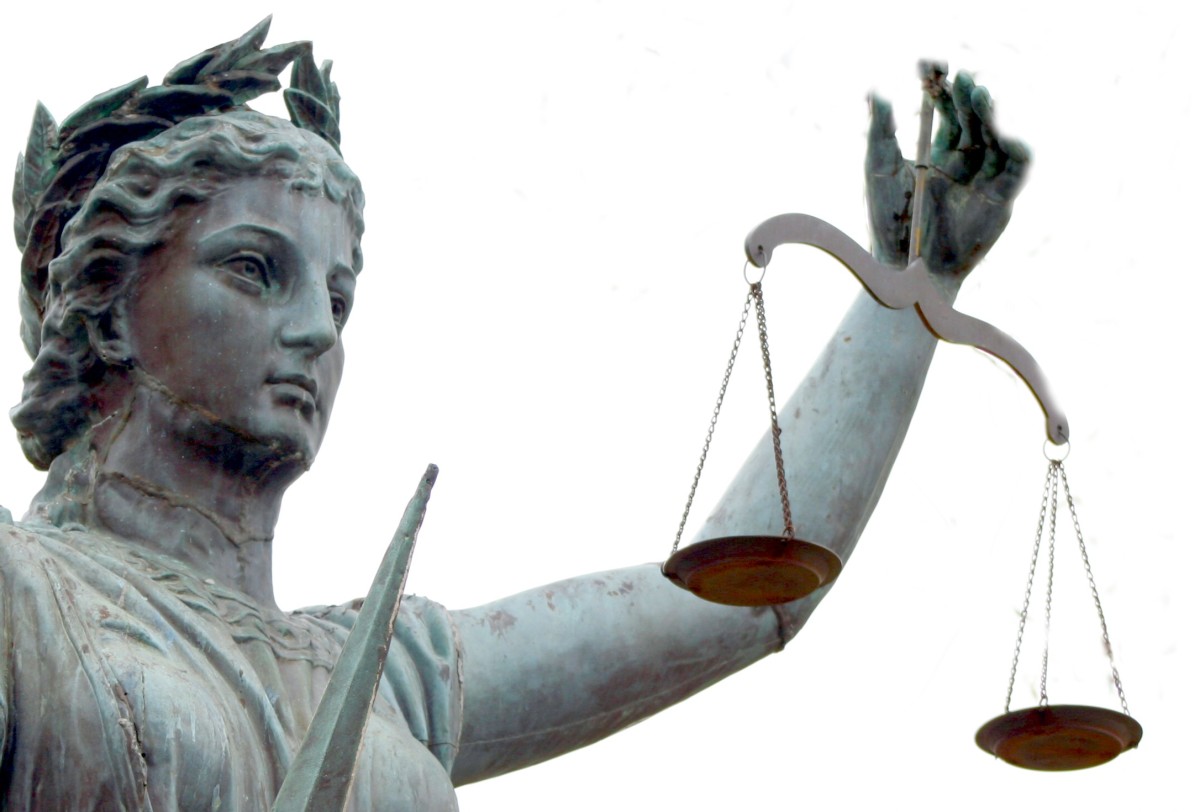One ground for Election petition is Errors and Omissions of the Electorial Officials
Due to error and omission of electoral Officials
Torato v. Electoral Commissioner, Konu and Balakau [1988-89] PNGLR 83. This was a petition brought pursuant to s. 206 of the Organic Law on National Elections disputing the election of a member of Parliament on the grounds, inter alia, that there had been errors or omissions in the conduct of the election which seriously affected the result, the evidence showed that a misapplication of s. 141 of the Organic Law on National Elections, in manner which permitted persons who were not enrolled to vote to vote, affected nearly half of the votes cast in the election and no reliable documentation of the votes cast or the tally sheets was retained by the Electoral Commissioner. Section 141(1) of the Organic Law provides:
“notwithstanding anything in this law, where a person who is entitled to be enrolled on the Roll for an electorate claims to vote at an election at a polling place prescribed for that electorate and whose name has been incorrectly omitted from... the certified list of voters for that polling place...he may, subject to this law, be permitted to vote if (i) he non-enrolment is due to an error or mission in the compilation of the Roll and (ii) his is not enrolled for any other electorates, and in addition ... makes a declaration in the prescribed form before the presiding officer at the polling date”.
In dismissing the petition the court held that:
- Under the Organic Law, entitlements to vote are dependent on an application to enrol having been made. Section 141 of the Organic Law is only available to voters who have applied in proper form to be enrolled and the omission of whose name from the roll is “due to error or omission in the compilation of the roll”. A person who has never applied to be enrolled cannot be a person whose “non-enrolment is due to an error or omission in the compilation of the roll”. In re a Parliamentary Election for the Moresby North-East Electorate; Re petition of Kiki [1978] PNGLR 446, followed and considered.
- In determining whether the result of the election was likely to be affected by the errors or omissions in the conduct of the election it was relevant to consider whether there was no real electing at all, or whether the election was not really conducted under the subsisting election laws and to compare the actual voting and what the voting would have been had the election been free from irregularities. Isilowa v.Biaguni [1980] PNGLR 140 at 145 considered and applied.
- In the circumstances, including the large number of irregularities and the wide margin between candidates on the available uncertified records, the Court could not be satisfied that the majority of eligible voters had not been able to elect the candidate they preferred and the petition should be dismissed.
Kakale v. Pundari and Electoral Commission [1993] PNGLR 454.The petitioner disputes the validity of the election of the first respondent as the member for Kompiam-Ambun Electorate in 1992. He alleges irregularities in the counting procedure by the second respondent and undue influence by the first respondent on the electoral officials, which affected the counting.
In dismissing the petition, the Court held that:
- A declaration of the winner in an election is made only after the counting sheet is ruled off and signed by the officials and the scrutineers.
- It is not sufficient for a petitioner to come to the National Court with suspicions and doubts as to the validity of an election. The National Court is able only to act on evidence where there has been clear irregularity or illegal acts which may have affected the results of the election.
Ranyeta v. Iangalio and the Electoral Commission [1999] PNGLR 95.The Petitioner relied on a number of grounds most of which got struck out in preliminary hearing leaving one ground of allegation of bribery and an allegation of errors and omissions by the Electoral Commission. The Petitioner did not pursue the charge of bribery and this trial proceeded on the allegations relating to the alleged errors and omissions by the Electoral Officials. The Court in dismissing the petition held that the Returning Officer of the Electorate rejected the Rupikores and Wainepakam ballot boxes on the basis that he had written evidence of irregularities and tampering from a presiding officer. However, the facts relied to support the petition, in fact support the petition, and in fact establish that the Returning Officer was authorized to carry out the actions that he did. It was further held that the Returning Officer at the Wabag Counting Centre faced with reports of votes having been initialled by Presiding Officers under duress and marked by unauthorized persons, was given good reason to reject those boxes. Because had he received them he would have been obliged to count those votes which in terms of s 153(3) of the Organic Law on National and Local-Level Government Elections despite their criminal origin, would be by that Section, normally at least, formal votes. Plainly that is not intended or lawful under the Organic Law.
Philip Base (Dr) v. The Electoral Commission and John T Hickey [2002] (Unreported National Court Judgment 2340. 11th December 2002). The respondents object to the competency of the remaining grounds of the petition under Organic Law on National Elections, s. 208(a). The grounds of the petition were on irregularity by the first respondent and the second respondent. The grounds of remaining petition were:
- That during the counting the First Respondent, its servants and/or agent unlawfully and irregularly prevented counting to be open to scrutineers pursuant to section 151 of the Organic Law.
- That the First Respondent its servants and/or agents illegally and irregularly refused to admit an enrolled voters at certain electorates named contrary to section 132 of the Organic Law.
- That the Agents and/or servants of the First Respondent unlawfully and irregularly conducted polling outside a prescribed place of polling in that the agent and/or servants of the First Respondent did take ballot papers into home of three (3) electors from where the electors voted contrary to section 132 of the Organic Law.
The Court in dismissing the petition said that the probability or likelihood of the result of the election being affected under s. 215(3) in the case of illegal practices has no application to errors or omissions under s. 218. Rather, the test is whether the petition pleads specific facts in terms of number of votes which actually affected the result of the election. [The Supreme Court overturned this decision and ordered a trial, see SC745 below]
Review Pursuant to Constitution Section 155(2)(b); Application for Review by Dr Philip Base [2004] (Unreported Supreme Court Judgment SC745 ,7 May 2004). This is an application to review a decision of the National Court under s 155 (2) (b) of the Constitution. The Electoral Commission (First Respondent) and the Second Respondent filed objections to the competency of the remaining grounds. In essence, they based their objections on pleading of facts contrary to s 208 (a) of the Organic Law. The trial judge upheld the objections by the Respondents and dismissed the remaining grounds of the petition.
The court in allowing the review, quashing the decision of the National Court and restoring the petition and directing that appropriate steps be taken for this matter to proceed to trial said:
- We would adopt the interpretation given by the trial judge of the meaning of s 151 (c) of the Organic Law. We wish to further clarify the meaning of the word "inspection" in the context of scrutiny of votes. Whilst it may not be practical for each ballot paper to be examined physically by every scrutineer (that is to say every scrutineer should physically examine each ballot paper individually), what is important is that every scrutineer should be in a position to see or view every ballot paper as they are sorted and distributed to each tray for the various candidates.
- Whilst we agree that if a scrutineer does not raise an objection, a ballot paper(s) remains unchallenged at the time of sorting and distribution of the ballot paper, we do not agree that "it is not open" to a scrutineer to later raise the complaint.
- The correct view in our opinion is that a complaint made later in a petition may be regarded as lacking any credibility. That is a matter of evidence and weight to be considered at the trial. Similarly, whether or not a scrutineer standing at the distance indicated in this case was able to see or view the ballot papers is a matter of evidence or weight to be determined at the trial.
- In our opinion, the trial judge erred in law in determining this issue without proceeding to trial.
The act complained of in this ground relate to taking ballot papers in to homes of voters and enabling them to vote contrary to the provisions of Organic Law. There is no provision which allows electoral officials to take ballot papers to vote in their homes. The act complained of relate to only 3 electors. If this pleading stood alone, it is not likely to affect the result under s 215 (3) or would affect the result under 218 of the Organic Law.
Saweni v. Pruitch and the Electoral Commission [2003] PNGLR 3. The petitioner filed the petition contesting the results of the election. One of the grounds of the petition was related to alleged irregularities, errors, omissions and undue influence against the first respondent, his servants and agents and electoral officials. The court in dismissing the petition held that failure to plead the ground and the facts as required by s 208 (a) or failure to plead the facts to support any of the elements under s 218 (1) of the Organic Law will be fatal, s 210 of the Organic Law.
Karani v. Silupa and the Electoral Commission [2003] PNGLR 9.This was an election petition grounded on bribery, undue influence, illegal practices and errors or omissions by electoral officials. The respondent to the petition, Mr Silupa and the Electoral Commission object to the petition in the form it is. The objection was grounded on their claims that material facts have not been pleaded by the petitioner as required by s. 208 (a), s. 215 and other provisions of the Organic Law on National and Local-Level Government Elections (the Organic Law) and S. 100, 102, 103 and other provisions of the Criminal Code.
The Court in dismissing the petition held that by looking at all the paragraphs either individually or together, it is quite clear in my view that the allegations are too general, confusing and do not plead several material facts.
Poia v. Electoral Commission of PNG and Inne [2003] PNGLR 17. The was an Election petition challenging the election of Fabian Ine'e as member for Goilala Open Electorate on grounds of (1) an illegal practice, namely, tampering of ballot box number CENT 0242 (disputed box) contrary to s215 (3) of the Organic Law on National and Local-level Government Elections (Organic Law) and (2) error on the part of Joseph Merusa (Returning Officer) in counting the disputed box contrary to s. 218 (1) of the Organic Law.
In dismissing the petition the Court held that:
- Court is satisfied that there is no evidence that the lock to the disputed box was tampered with at any time and that no ballot papers were unlawfully inserted or taken out from the disputed box.
- Consequently the Returning Officer did not err in counting the disputed box.
Tomscoll v Electoral Commissioner and Sembri [2003] (Unreported National Court Judgment N2349, 17 March 2003).The Petitioner challenges the return of the Second Respondent as the duly elected member for the Middle Ramu Open electorate in the National Parliament in the 2002 general elections. The Petitioner relies on alleged errors or omissions committed by electoral officials in safeguarding the integrity of some 694 votes contained in Ballot-Box No. 0056. When the ballot-papers in this box were counted the Second Respondent scored 604 votes compared with the Petitioner’s 26 votes and he went on to win the election. The petitioner alleges this box was disputed at the time of counting on the basis that the presiding officer did not secure this box with an inner and outer plastic seal tags at the close of polling. At the time of counting, the Petitioner’s scrutineers disputed this box on this basis but the Returning Officer wrongly decided to count the votes in that box.
The court in declaring that the Petitioner as the duly elected Member for the Middle-Ramu Open Seat in the National Parliament and the first Respondent ceases to be a member of the National Parliament said:
- The recklessness, almost bordering on deliberate misconduct, of polling officials Mr. Kaugeri and Mr. Kohuli in safeguarding the integrity of this box and/or the erroneous decision made to count this disputed box respectively alone are sufficient to disallow the ballot box from being opened and counted.
- The errors or omissions affected the result of the election and declare that the First Respondent was not duly declared pursuant to s.212 (1)(g). It was clear to the court that the result of the election should be in favour of the Petitioner.
- In all the circumstances, the court was not satisfied that Mr. Kohuli made a correct or reasonable decision to count this box.
[This decision was overturned by the Supreme Court Decision below see SC723]
Review Pursuant to Constitution Section 155(2)(b); Application by Ben Semri [2003] (Unreported Supreme Court Judgment SC723, 3 December 2003). This is an application to review a decision of the National Court under s 155 (2) (b) of the Constitution. The National Court tried an election petition which was filed by Assik Tommy Tomscoll against the election of Ben Sembri, member for Middle Ramu Open Electorate in the 2002 General Elections. The National Court made two interlocutory rulings during the trial of the Petition. The first relate to an objection to the competency of the Petition. On 15th January 2003, the Court ruled that all the grounds of the Petition were incompetent and dismissed them with the exception of grounds 9 D (iii), 10, 11 and 13.After completing the trial, the Court on 17th March 2003 handed down its decision in which he ruled that the election of Ben Samri was void and declared Assik Tommy Tomscoll as the duly elected member for Middle Ramu Open Electorate.
Mr Ben Sembri and the Electoral Commission (Applicants) filed separate reviews (SCR 22 of 2003 and SCR 23 of 2003) against all three decisions pursuant to s 155 (2) (b) of the Constitution.The Court in allowing the review, quashing the decision of the trial judge and reinstating the Applicant Ben Sembri as the elected member for Middle Ramu Open Electorate said:
‘In our view the trial judge erred in law in coming to this conclusion. The integrity of the ballot-box must involve the validity of the votes in the ballot box. It is the counting of these votes which might affect the result of the election. The trial judge ought to have considered whether the lack of inner and outer seals affected the validity of the votes in the box. In this regard the trial judge ought to have considered all the relevant circumstances which might affect the validity of the votes. In the present case, the ballot box was securely fastened with a padlock. There is no suggestion that the lock was unlawfully removed between the periods it was fastened to the box to the date of the scrutiny of the votes. In the circumstances there is no proper basis for questioning the integrity of the ballot box. This is the central issue in this case. If there is no evidence of any interference with ballot box which gives rise to the question of integrity, there was no error in counting the ballot box. In view of our finding, it is not necessary to consider other grounds of review”.
In the Matter of the Organic Law on National and Local-Level Government Elections, Karani v Silupa [2003] (Unreported National Court Judgment N2385, 10 April 2003).This was an election petition by Mr. Mathias Karani (Petitioner) against Mr. Yawa Silupa’s election as Member of Parliament for Lufa Open Electorate in the 2002 General Elections for the National Parliament. The petitioner alleges Bribery, undue influence, illegal practices and errors or omissions by electoral officers. The respondent to the petition, Mr Silupa and the Electoral Commission object to the petition in the form it is. That objection is grounded on their claims that material facts have not been pleaded by the Petitioner as required by s. 208 (a), s. 215 and other provisions of the Organic Law on National and Local-Level Government Elections (the Organic Law) and S. 100, 102, 103 and other provisions of the Criminal Code.
The court in dismissing the petition said:
“If the petition is founded, e.g. an errors or omissions of electoral officials, for instance under s. 218 then the pleading must set out the relevant material facts. Allegations in petitions founded on errors or omissions must provide facts to show the following;
(a) The error or omission complained of;
(b) The error or omission was committed or made by the electoral officer; and
(c) The error or omission "did affect the result of the election".
Review Pursuant to Constitution Section 155(2)(b); Kopaol v Embel [2003] (Unreported Supreme Court Judgment SC727 (17 December 2003). The Applicant was returned winner as elected Member of Parliament for Nipa/Kutubu Open Electorate in 2002 National Elections. He ousted the sitting Member the Respondent herein. A petition challenging the result was filed in the National Court and after preliminary objection was raised objecting to the competency of the petition, all grounds were struck out as incompetent except for two (ground 9 and 13). Those two grounds proceeded to trial and election was overturned and by-election was ordered.
Applicant applied for judicial review under s.155 (2)(b) of the Constitution challenging the decision on two grounds: firstly, both grounds ought not have been allowed to go to trial as they violated s. 208(a) of the Constitution in that no proper facts were pleaded and pleading was poor and inconsistent hence, petition was prohibited by s.210 from being heard; and secondly, there was hardly any credible evidence showing whether results of the election were affected if errors or omissions under s.218 were relied upon.
The Court held that:
- Both grounds 9 and 13 were incompetent as they failed to meet the requirements of s.208(a) and the trial judge erred in allowing them to go to trial;
- 2. Having allowed them to go to trial, there was hardly any credible evidence showing that the result of the election was affected by the alleged errors or omissions of the election officials;
- 3. There is no credible evidence of any relationship between the Applicant and the officials of the Electoral Commission; and
There is no credible evidence that the Applicant was in any way involved in a conspiracy with the election officials to interfere with free exercise of elections in the Electorate.
In the Matter of The Organic Law on National and Local-Level Government Elections, Nomane v Anggo and Electoral Commission [2005] (Unreported National Court Judgment N2888, 9 September 2005)The petitioner has alleged that the second respondent through its servants and agents committed material errors and omissions contrary to s. 218(1) of the Organic Law and that those errors and omissions affected the result of the election. Under this section, it is not enough for the petitioner to merely show that the second respondent committed errors and omissions; he must also show that those errors and omissions were material and that they did affect the result of the election.
The Court said “the petitioner has made two main allegations against the respondents. First is the allegations of undue influences and other illegal practices against the first respondent and second is the allegations of material errors and omissions against the second respondent. The petitioner therefore bears the onus to prove these allegations with clear and cogent evidence to the entire satisfaction of the Court for the election to be avoided. See, Neville Bourne -v- Manase Voeto[1977] PNGLR 298; Mokwa Mamando -v- Pyange Ni[1977] PNGLR 496 and Arnold Marsipal -v- Michael Pondros [1977] PNGLR 354”.
The court said that the petitioner has proved to the satisfaction of the Court that the errors and omissions committed by the second respondent, its servants and agents were material and they affected the result of the election. The court declared the electionof the first respondent void and a by-election to be held.
Re An Election Petition for the Tari-Pori Open Electorate; Marabe v Tomiape and the Electoral Commission [2006] (Unreported Supreme Court Judgment SC827, 3 March 2006). The applicant was runner-up to the first respondent in the 2003 supplementary election for the Tari-Pori Open electorate. The applicant filed an election petition in the National Court, claiming that the presiding officer at a particular polling place had made a series of errors that resulted in supporters of the first respondent engaging in multiple-voting. He claimed that the presiding officer facilitated the multiple-voting and at one stage deliberately cut the inner plastic seal of the ballot-box, opened the ballot-box and used his feet to push down the ballot papers already in the box to make more space. The petition Judge was not satisfied that the applicant had proved the allegations made in the petition and dismissed the petition. The applicant sought review of the dismissal of the petition.
The Court in dismissing the review and confirming the decision of the National Court held that:
- When the votes in a ballot-box are disputed it is not sufficient for a petitioner to prove that an error has been made by a presiding officer or returning officer. The petitioner must prove that the integrity of the ballot-box has been substantially and adversely affected having regard to all relevant circumstances.
- On the hearing of the petition the decision on which was reviewed in the present case, it was not shown that the petition Judge had applied the incorrect test or made any error of law regarding the integrity of the ballot-box or any other ground of review.
Wingti v Rawali, Electoral Commission and Olga [2008] (Unreported National Court Judgment N3286, 14 March 2008).The petitioner challenged the result of an election to the National Parliament through an election petition, relying on two grounds: errors and omissions by electoral officials resulting in the failure to count five ballot boxes containing about 3,181 votes (ground 1) and errors or omissions at the counting centre (ground 2). As to ground 1, the petitioner alleged that the returning officer failed to properly exercise his discretion to reject the ballot boxes, failed to follow proper procedures and rejected the ballot boxes without good reason, contrary to the Organic Law, Section 153A.
As to ground 2, the petitioner alleged that illegal or improper practices and/or errors or omissions were committed at or around the counting centre, in that: counting officials were intimidated, there was inadequate control and security of ballot papers, ballot papers were tampered with, there were material discrepancies in the tally sheets and three disputed ballot boxes were not counted until after the distribution of preferences, creating reasonable doubt over the reliability of the result declared by the returning officer.
In ordering a recount, the Court held that:
- If a scrutineer, candidate or polling officer objects to a ballot box being admitted to scrutiny, the returning officer must address his or her mind to the objection and make an independent decision, subject only to direction by the Electoral Commission, to admit or refuse to admit the ballot box to scrutiny.
- The returning officer must document the objection, record the decision making process and clearly state what opinion has been formed for the purposes of Section 153A and the reasons for forming that opinion.
Kopaol v Embel and the Electoral Commission [2008] Unreported National Judgment N3319, 23 April 2008.The Petitioner filed an election petition in the National Court claiming "undue influence by the First Respondent and errors and omissions of the Second Respondent and illegal practice by the First and Second Respondent". A notice of objection to competency was filed on 26 October 2007 and served on the petitioner through its lawyer’s office. The Second Respondent was also served a copy of the notice of objection to competency on the same day.
The petition alleged instances of undue influence and illegal practices against the First Respondent and errors and omissions against the Second Respondent at a certain polling area but in various locations.The Court dismissed the petition as being incompetent.
Kaiabe v Mulungu and Electoral Commissioner [2008] (Unreported National Court Judgment, N3329, 5 May 2008).The petition was founded on the grounds that:(i) polling officials committed errors and omissions which errors and omissions affected the results of the election; (ii) Polling officials, supporters of candidates and criminals infringed the constitutional rights of eligible voters to exercise their rights to vote and (iii) Polling officials, supporters of candidates and criminals committed illegal practices.
The nature of the errors and omissions and illegal practices allegedly committed by the polling officials were:-(i) Presiding officers signed the ballot papers either before or after certain leaders and supporters had filled the preferences on the ballot papers and then had them cast into the ballot boxes and (ii) By doing this the polling officials and supporters of candidates and criminals infringed the constitutional rights of eligible voters to exercise their rights to vote.
The nature of the errors and omissions and illegal practices allegedly committed by certain leaders, supporters of candidates and criminals were:-(i) Certain leaders by threats of intimidation demanded that as particular polling places were the home base of certain candidates, that candidate would get the most first preference votes; (ii) The polling officials were threatened and intimidated and told to do as the leaders and supporters wanted; (iii) The polling officials were told to hand out the ballot papers to the leaders and supporters, which they did, under protest or under threat and (iv) The leaders and supporters then marked the preferences and gave them to the presiding officers to sign and put in the ballot box.
The court in finding to its entire satisfaction that the results of the election was likely to be affected because 4882 votes illegally casted is more than the difference between the winner and the runner up and declaring that the first respondent not duly elected and further declaring that the election for the Komo Magarima Open seat absolutely void said:
- The right to vote is an individual right to every citizen who is of full capacity and has reached voting age. This right is not a group right, a clan right, or a tribe right such that one or two persons exercise that right for and on behalf of a particular group or clan or tribe. This is a sacred right given to one individual only to exercise that right himself or herself.
- In this case certain leaders, supporters and polling officials marked the preferences for and on behalf of eligible electors or votes in certain polling places. I have made such findings in those polling places. Where this has occurred, it has amounted to breaches of s.50 of the Constitution in that those eligible electors or voters have been denied their individual rights to vote for a candidate of their own free choice.
- The effect of the breach is that 4,882 eligible electors or voters have been denied their rights under s.50 of the Constitution to vote for a candidate of their choice.
- The votes of those 4,882 eligible electors or voters who have been denied the right to vote for a candidate of their choice is important because their votes will affect the outcome of the final result. Their votes outnumber the winning difference between the declared winner and the runner up.
Hoap v Iwei and the Electoral Commission [2008] (Unreported National Court Judgment N3420, 17 June 2008). This was a petition by the petitioner, disputing the election of the first respondent. The first respondent objected to the petition as being incompetent on the grounds that firstly, the date of declaration pleaded in paragraph 2 of the petition is incorrect, and secondly, the petitioner failed to state whether the 244 votes in question were marked as first, second or third preference votes in his favour. The objection was heard on 4 March 2008 and dismissed on the same day and proceeded to substantive hearing.
The Court in ordering a recount of all ballot papers held that:
- The evidence of the Returning Officer,was mostly hearsay therefore inadmissible.
- The exclusion of the 244 ballot papers in dispute by the Returning Officer amounted to both an error and an omission.
- The inclusion of the 244 ballot papers in dispute to the final tally of the petitioner would have resulted in him being declared elected with 196 votes more than the first respondent.
- The errors and omissions would have likely affected the result of the election.
By: Mek Hepela Kamongmenan LLB








